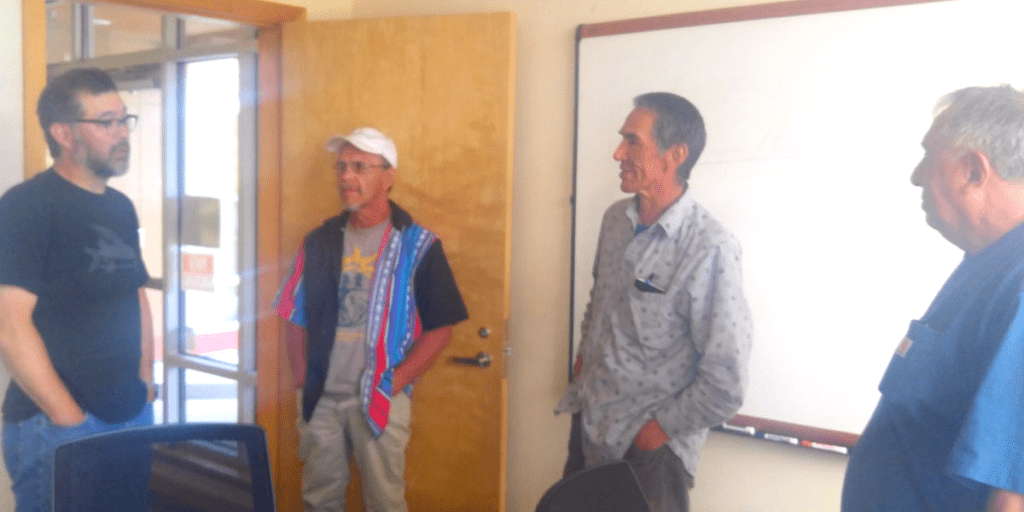Patagonia Reps Meet With Tribal Elders To Discuss Ongoing Film-making
By Riley Starks, Marketing Manager, Lummi Island Wild

Patagonia’s Dylan Tomine meets with Lummi Nation elders Richard Jefferson, Steve Soloman, and Larry Kinley.
Before the Lummi Nation and Tribal Elders will allow Patagonia to film this latest chapter in their return to reefnetting, they want to be sure that the motivation of the film makers is sincere and unselfish. There is a long and documented history of non-Indians using tribal stories to further their own gain, and Tribal Elders have had enough of that. All attendees came away from this meeting convinced that we can work together for our mutual benefit, with the health of the salmon resource remaining the paramount concern.
Lummi Island Wild is acting as a facilitator, with our goal being to provide a meaningful alternative to destructive fishing practices while sustainably harvesting Salish Sea salmon stocks—many of which are in trouble. Those that are healthy, though, need to be harvested. When these stocks are mixed, as they always are in the Salish Sea, a selective method such as reefnetting can allow for the safe harvest of targeted species while returning endangered stocks back to the water with no harm.
A perfect example of this is harvesting the pink salmon run while late run or other weak sockeye stocks co-mingle with the schools. There is no other gear type that can do this. The alternative is to kill sockeyes (and chinook) in order to harvest the pinks, which need to be harvested. This type of fishery management is a dangerous compromise that can allow for a death spiral for weak stocks as decades pass by.
Connecting tribes with responsible organizations such as Patagonia, working to maintain and improve the health of salmon resources, and setting an example of sustainability and ethical sourcing, are all cornerstones of the mission driving Lummi Island Wild. We appreciate you supporting our work by purchasing directly from our website—one of the best ways to back our efforts.
As always, thanks for reading!

